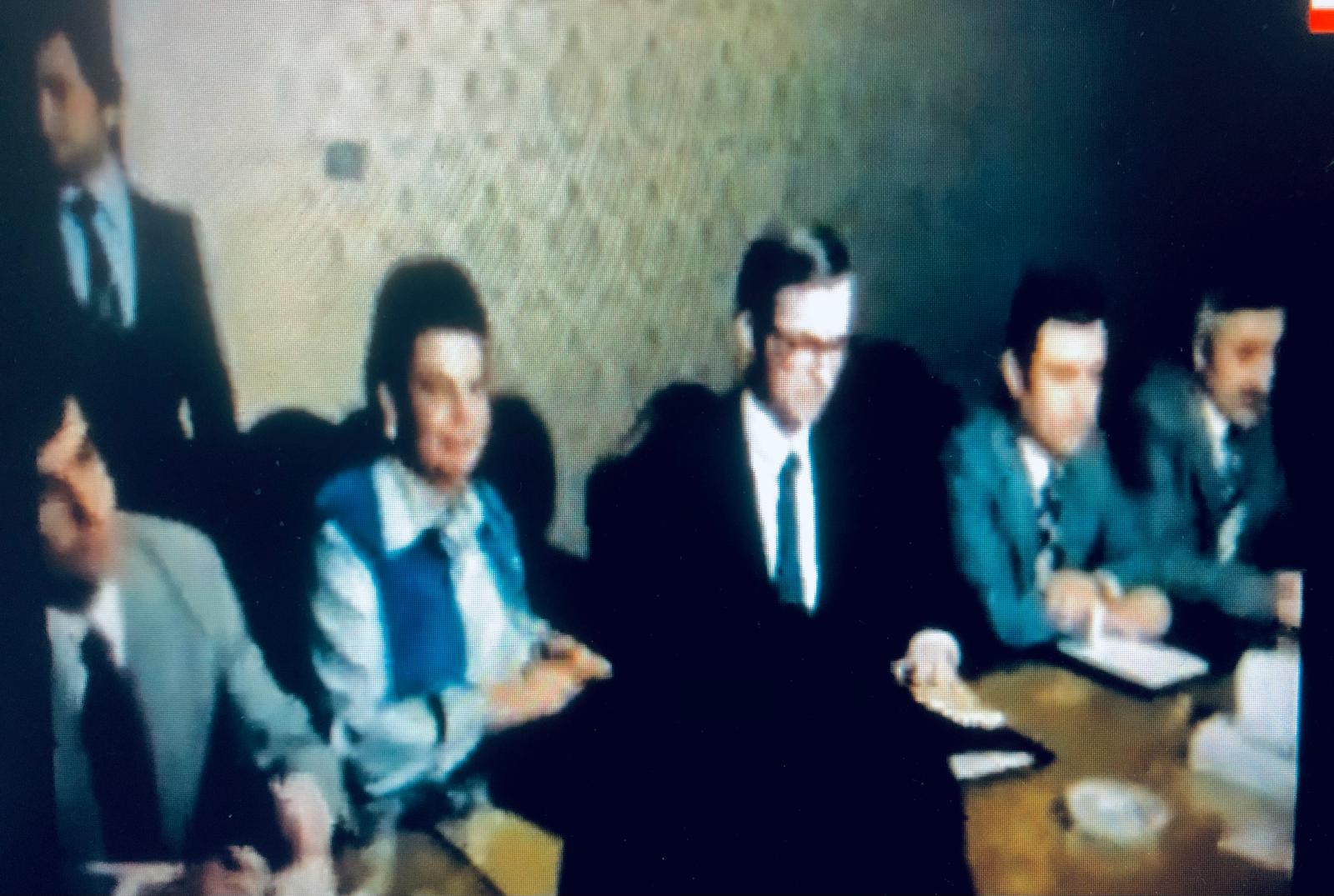Two Arab foreign ministers offered President Reagan some ‘helpful’ new ideas Tuesday for solving the conflict in Lebanon, and aides said they will be relayed to U.S. mediator Philip Habib.
During an extended 70-minute meeting, Reagan discussed the Middle East crisis with Prince Saud al-Faisal of Saudi Arabia and Abdel Halim Khaddam of Syria, who came to Washington as representatives of the Arab League.
Asked later if any progress had been made on the Palestinian situation, the president said, ‘I hope so,’ he replied.
A top aide to PLO chairman Yasser Arafat told reporters in west Beirut the PLO is ready to accept Israel’s right to exist in order to open direct negotiations with the United States. Such recognition is the main U.S. condition for direct contacts with the PLO.
The PLO aide said a message containing the offer was carried to Washington by Khaled el Hassan, a ranking PLO official traveling with the foreign ministers. But a White House source said ‘such a message has not been brought to the president.’
Saud, who was clad in Arab robes and headdress, told reporters the Arab world considers ‘withdrawal of the aggressor Israel’ — not relocation of the Palestine Liberation Organization — the first priority for ending the crisis in Lebanon.
An administration official, who asked not to be identified, said the meeting, also attended by Secretary of State George Shultz, produced ‘some new ideas that will form the basis of further discussion.’
‘I think it adds a new element of possible movement in the right direction,’ the official said, declining to be specific. ‘We talked about some new ideas that will be helpful we’re sure.’
The official said the ideas put forward by the Arab foreign ministers concern the ‘overall problem’ in Lebanon, not just the PLO question. He said the length of the meeting indicated Reagan’s ‘personal’ commitment’ to seeking an end to the bloodshed.
‘The president reiterated a renewed commitment to making progress within the framework of the Camp David accords,’ he said. ‘The other side reiterated their well known concerns on the Palestine issue and Lebanon.’
Saud described the talk in the Cabinet room as ‘very good and frank and friendly.’
‘We were able to convey to the president the seriousness and the willingness and the decision of the Arab countries’ to work toward ‘assisting the government of Lebanon and its independence of its territorial integrity and the safeguarding of the legitimate rights of the Palestinian people,’ the Saudi minister said.
The Saudi foreign minister declined to say if other Arab nations had agreed to accept the 6,000 PLO fighters trapped by Israeli troops encircling West Beirut. News reports from Beirut said Iraq and Algeria have offered a haven.
‘The issue from our point of view primarily is the independence and territorial integrity of Lebanon,’ Saud said. ‘Within that context, the primary concern is the withdrawal of the aggressor Israel.’
After such a withdrawal, he said, it should be the ‘decision of the Lebanese government and the Lebanese people’ whether the PLO should pull out of Beirut. He said PLO leaders have said ‘they were willing to go.’
‘The thing we have to guarantee … (is) the withdrawal of Israel troops,’ Saud said.
‘We asked the United States,’ Khaddam said, ‘to assume its responsibility as a permanent member of U.N. Security Council and as the country that extends huge economic and military assistance to Israel to put an end to the Israeli military aggression in Lebanon.’
The U.S. official said ‘our position from the beginning has been that Israel should leave Lebanon. To our knowledge this is consistent with Israel’s position that it will withdraw.’
But, he said, there is no timetable for Israel to pull its troops out of Lebanon.

